7+ Things You Likely Don’t Know About Royal Guards
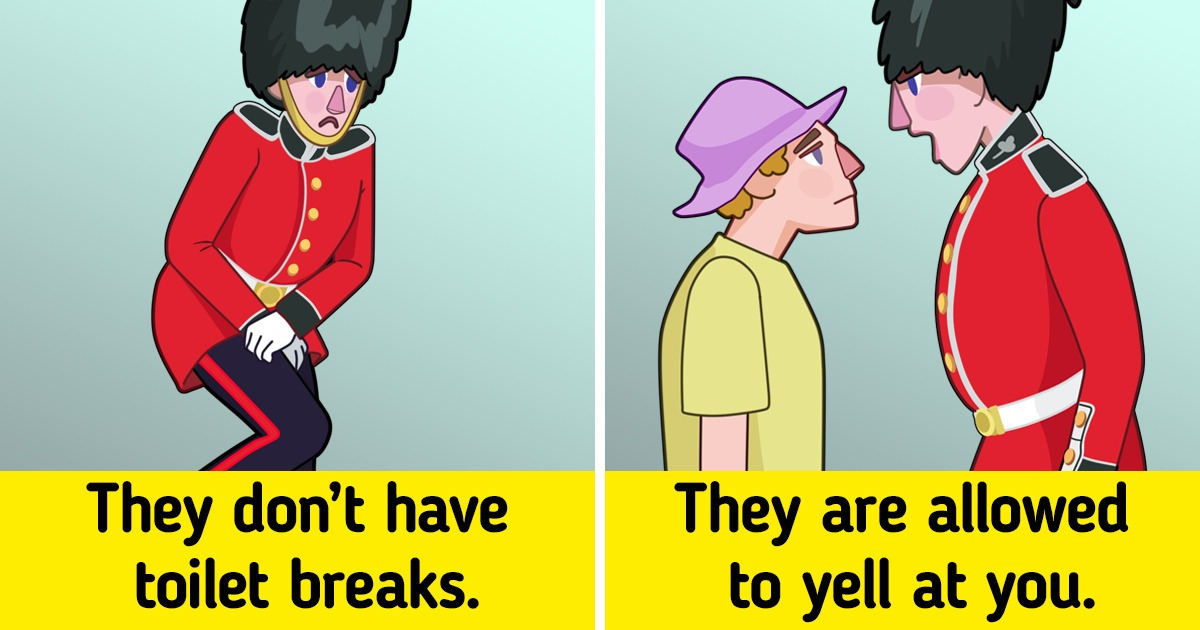
For generations, royal guards have protected the royal family. The Scots, Irish, Grenadier, Coldstream, and Welsh are 5 defender regiments. Each has distinct elements that set them apart from the others, and they have a specific set of rules that must be followed.
5-Minute Crafts will show you several ways to recognize different types of royal guards and some interesting facts about them.
1. They have specific rules that must be followed.
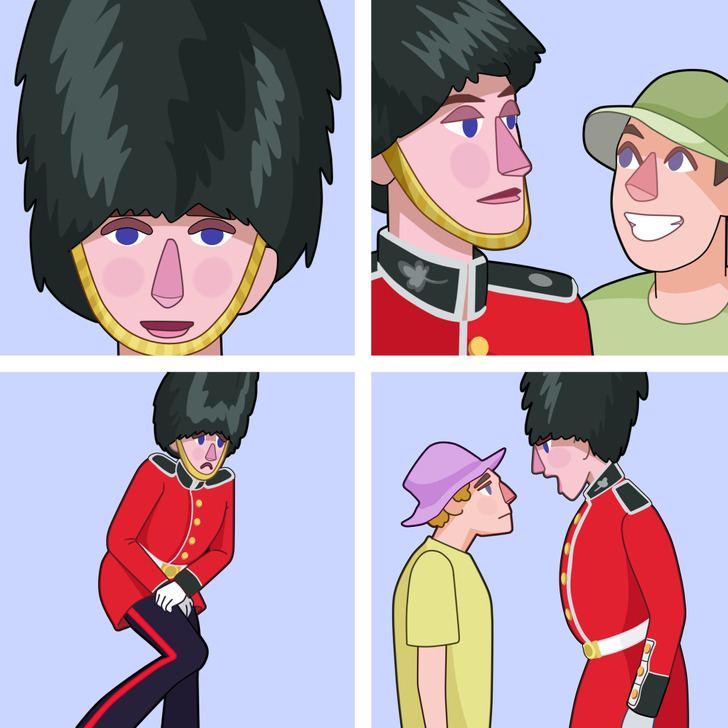
The royal guards must abide by several rules. Many of these are unfamiliar to most people. Here are a few examples of the rules:
- They wear tall hats to make them look bigger. And they have to have strong necks because the cap weighs 1.5 pounds (680 grams).
- They won’t smile no matter how funny your jokes are.
- The guards are so dedicated that they won’t leave for toilet breaks.
- You may think they’re always silent, but a guard can break their silence on certain occasions, like if a visitor gets too close, for example.
2. They have certain elements that set them apart.
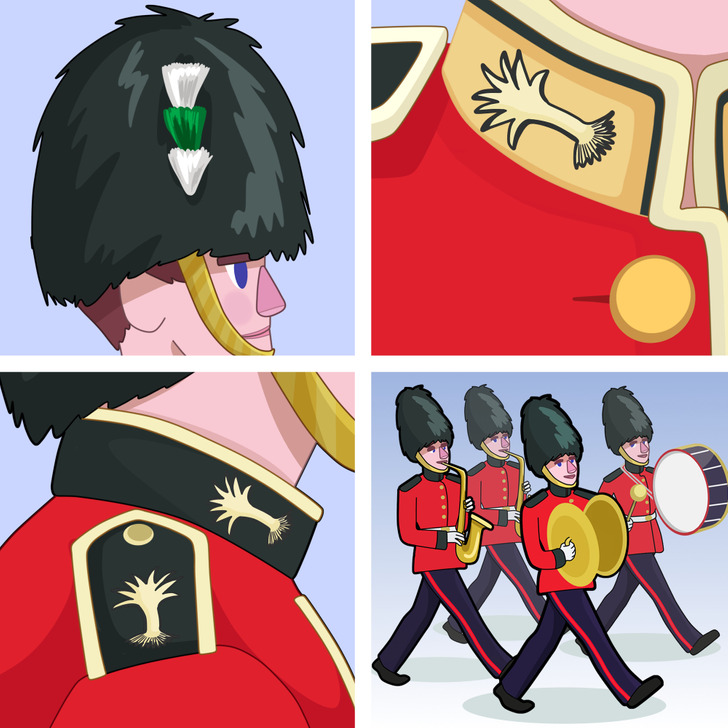
There are several indications on a royal guard’s uniform and hat that you can analyze to determine which regiment they belong to. Here are some details to help you understand the guards.
- A plume is a unique type of bird feather.
- Collar tabs are logo insignia worn on the uniform collar by military and civil service members.
- A shoulder mark is a sleeve made of flat fabric worn on a uniform’s shoulder strap.
- Regimental strides can be seen in regimental marches, which are versions of popular songs from the time performed at parades and celebrations.
3. Learn to identify different types of guards.
Grenadier guard
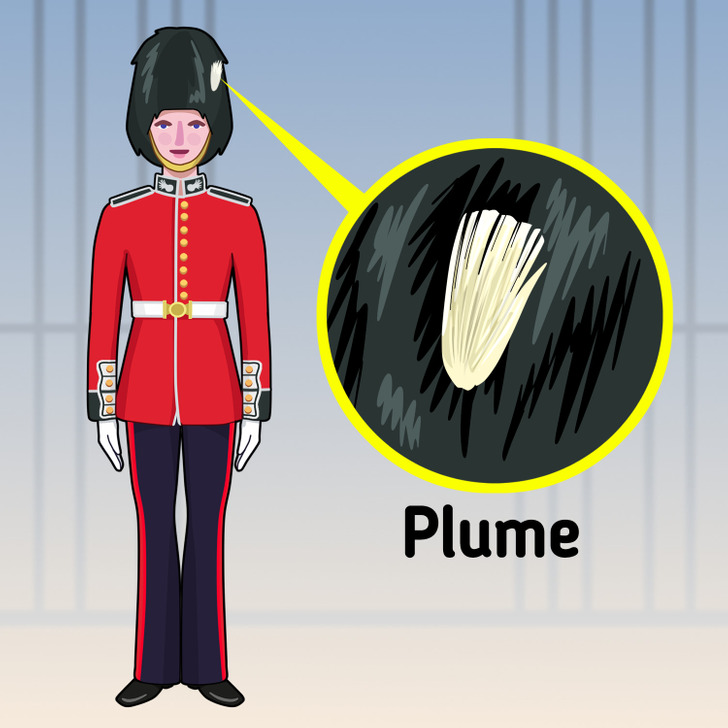
Members of this regiment are known for their commitment, devotion, and grit. Their scarlet tunics and bearskins are recognized worldwide, and they’re known for their quality, symmetry, and accuracy when performing ceremonial tasks in London and at Windsor castle.
They can be distinguished from other royal guards by these characteristics:
Coldstream guards
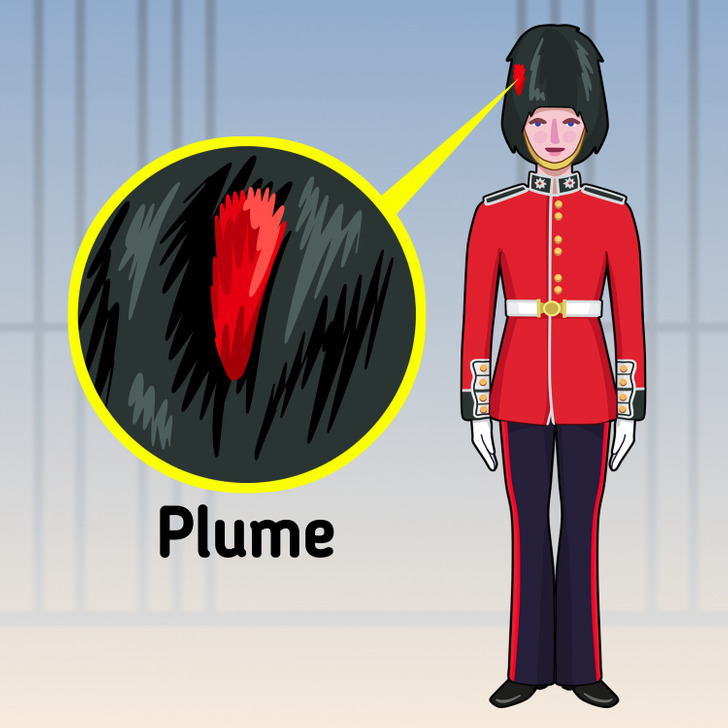
The Coldstream guards are widely recognized for their high-profile ceremonial tasks because of their adaptability.
They can be distinguished from other royal guards by these characteristics:
Scots guards
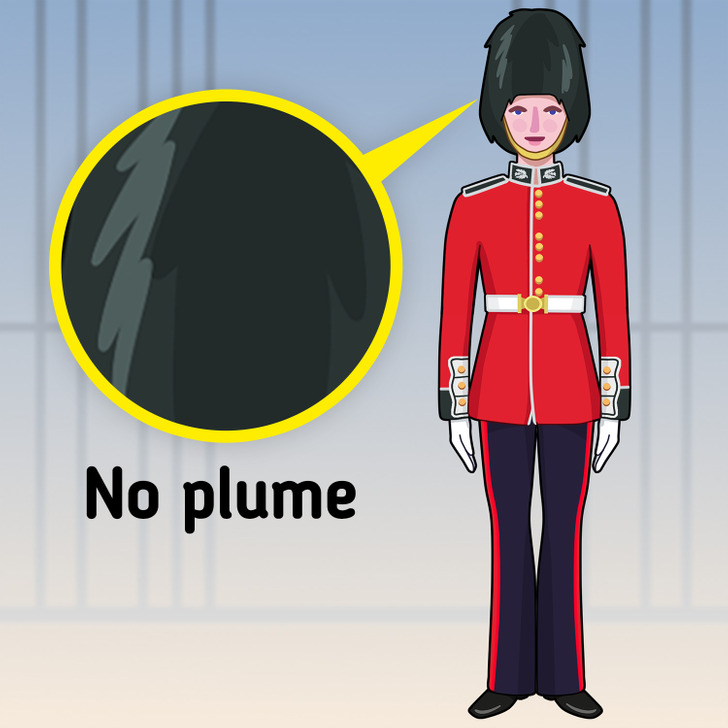
Scots guards were re-formed in October 1650, and the regiment’s ceremonial company has the distinct honor of guarding royal homes.
They can be distinguished from other royal guards by these characteristics:
- Plume: in comparison to others, they don’t have one.
- Button layout: threes
- Collar tab: thistle
- Shoulder mark: thistle star
- Regimental stride: fast: Hielan’ Laddie / slow: The garb of Old Gaul
- Anniversary: November 25 on St. Andrew’s Day
- Motto: “No one assails me with impunity.”
Irish guards
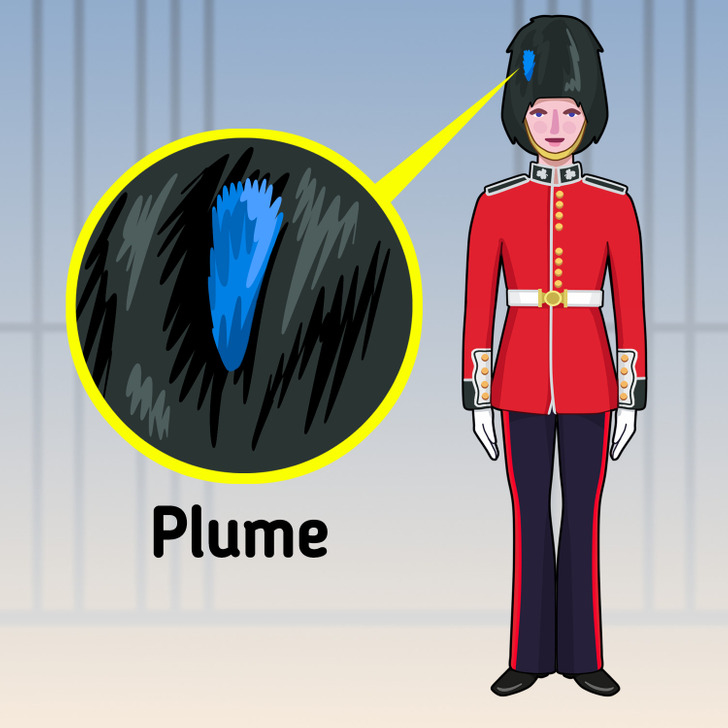
Irish guards have the honor of defending the royal family. They hire people from Ireland and the United Kingdom.
They can be distinguished from other royal guards by these characteristics:
- Plume: It’s on the right side and it’s blue.
- Button layout: quartet
- Collar tab: shamrock
- Shoulder mark: St Patrick’s star
- Regimental stride: fast: St Patrick’s Day / slow: Let Erin Remember
- Anniversary: March 17 on Saint Patrick’s Day
- Motto: “Who shall separate us?”
Welsh guards
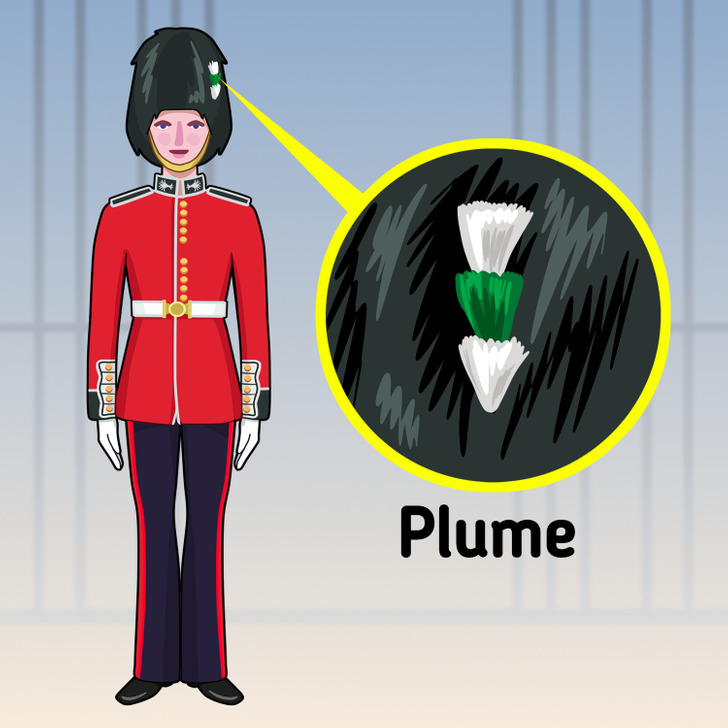
Welsh guards make up good ceremonial troops, defending the royal family and buildings and carrying out formal state tasks.
They can be distinguished from other royal guards by these characteristics:
- Plume: It is on the left side and is white, green, and white.
- Button layout: fives
- Collar tab: leek
- Shoulder mark: leek
- Regimental stride: fast: Rising of the Lark / slow: Men of Harlech
- Anniversary: March 1 on Saint David’s Day
- Motto: “Wales forever.”